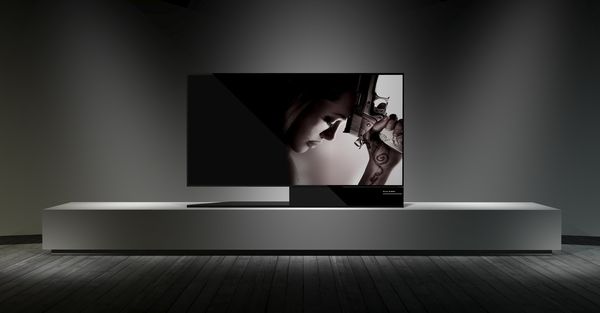Why Google Needs to Sell an Android TV
Yeah, I said it. Google should — and probably will — sell an Android TV.
No, not a dongle. And I’m not talking about a Google TV of the kind you can buy today in which Google technology puts the “smart” in the smart TV feature.
I’m talking about a full-blown, Android-based, big-screen, high-def TV set.
I’m going to tell you why, but first: Let’s understand why Google sells hardware at all.
Google isn’t a hardware company and, as I said in this space last week, they don’t care about hardware. And that’s what makes them such a great hardware company.
Google makes hardware because they are impatient. They create amazing things like Android, Google Search, Google Now, Google+, YouTube and all the rest. But carriers and cable providers keep the Internet too slow, so Google created the Google Fiber project. Laptop makers don’t embrace the power of the cloud, so they created the Chromebook and Chromebook Pixel lines. Handset makers aren’t taking advantage of Google Now, so Google’s Motorola created the Moto X. TV makers aren’t unleashing the full potential of the open web, so Google created Chromecast. Consumer electronics companies aren’t pushing the boundaries of wearable form factors, so Google created Google Glass. And so on.
Sometimes Google works with a hardware or OEM partner to bring some Google-centric hardware product into the world. Sometimes Google goes it alone. Either way, Google ushers in new hardware (or infrastructure) when it believes that hardware is holding Google back.
If you want to predict what future hardware Google will come out with, just look at where Google is being limited by current hardware offerings.
Here Comes the Androidbook
I think it’s pretty likely that Google will (working with partners like ASUS) start selling sometime this year or early next an “Androidbook” laptop similar in concept to the Chromebook, but running Android.
If you’re thinking this is a ridiculous idea because Android is a smartphone and tablet operating system and not a laptop OS, then you’re not thinking like Google. This is a company that makes a laptop using a fricken browser as the basis of an OS — you can be sure they’ll use an OS as an OS.
The fact is that people like a full-size, real keyboard. A laptop is a convenient form factor that enables users to touch-type, plug in a mouse if they want, have a bigger screen than a tablet and get serious work done.
I tried using the cloud-only Chromebook Pixel exclusively for a month, and I loved it. What’s hard to swallow for many users is the concept of living in the cloud and in a browser. And Androidbook could provide most of the benefits of the Chromebook, but with way more apps and plenty of local file storage.
Personally, I’d like to see an Androidbook that works like the Moto X — absurdly long battery life and always listening for Google Now commands.
The idea of Google bringing an Androidbook to market isn’t mine. It’s been rumored for months. And I believe the rumors.
The reason I believe them is that current laptops are holding Google back. They have lousy battery life and slow connections. They have low-resolution screens. They’re not optimized for Google Now. They cost too much. They’re not focused on Google Play content. And they don’t run Android!
And Androidbook line would fix all that.
After the Androidbook, I think Google’s next hardware venture should and could be a Google TV — a giant-screen, high-def television set, but optimized for unleashing the power of Google.
The Real Google TV Runs Android
The problem to be solved is that TV makers are living in the past. TV is dead, essentially. A TV set is now or should be just a giant, Internet-connected screen in the living room for social online content consumption and social networking. Instead, even Google’s own TV partners in Korea and Japan see their own TV products as a means by which they can assert their own intellectual property, their own software and their own services on customers.
When you set up your brand-new TV, where’s Google+ video hangouts? Where’s Google Now? Where’s YouTube?
Also: TV also shouldn’t be considered a home device exclusively. It’s also great for creative work and business communication.
In the Google vision of how things should work, a TV should be a really, really big window into the world of Google — Google content, Google services and Android apps. It should have a touch screen, and connect instantly to other Android devices. It should be listening for your Google Now requests, and preemptively offer up TV viewing suggestions, weather reports, information about local events and restaurants, notifications of incoming social messages and much more.
Google, no doubt, can imagine an amazing future for TV. But the industry that currently makes TV sets is dragging their feet, pushing misguided and proprietary interfaces and living in the past.
And that’s why I think Google will get into the TV business.



